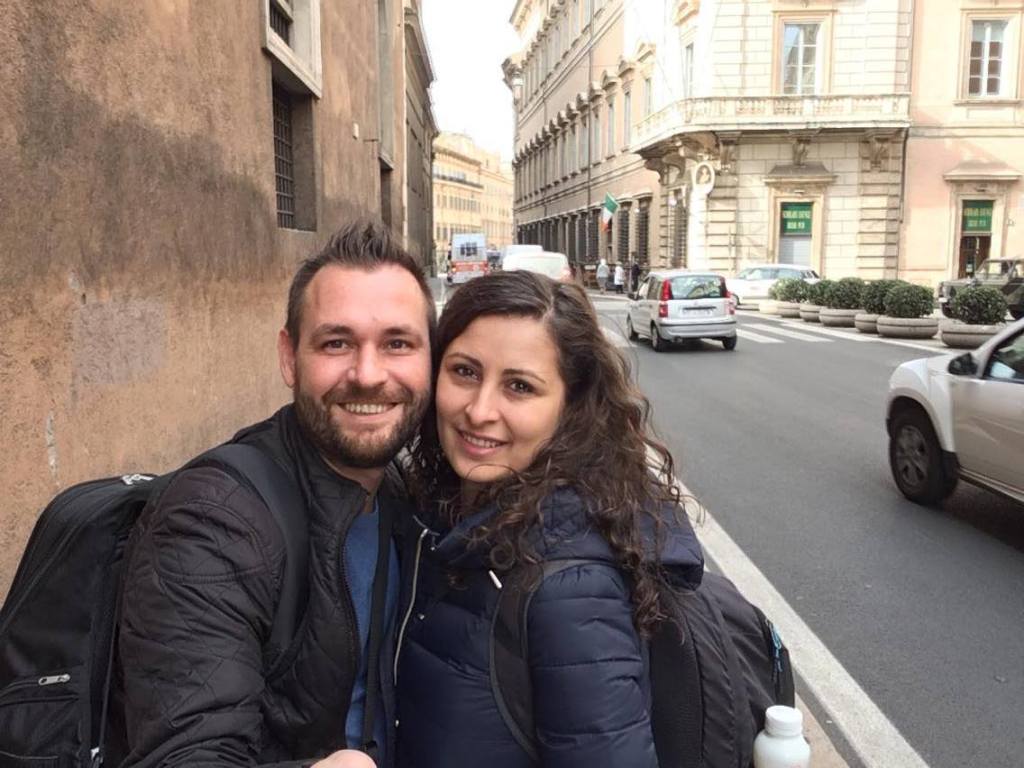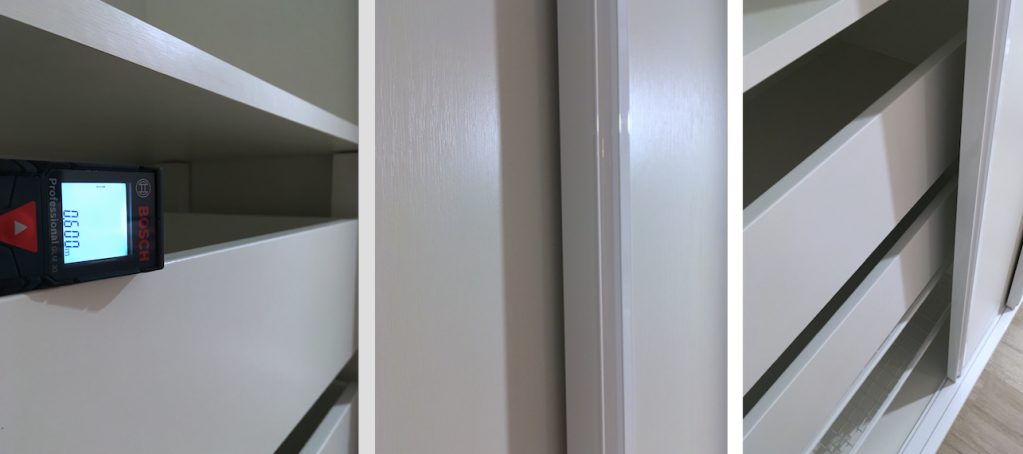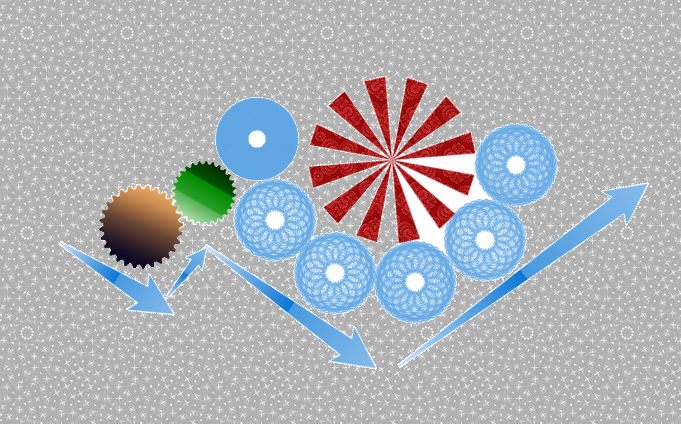Dragi prieteni, una din pasiunile mele este scrisul si reusesc sa o fac destul de rar, dar indeajuns cat sa pot fi alaturi de voi si de gandurile mele.
De aceasta data am sa impartasesc una din experientele mele recente (vacanta de weekend prelungit in Roma – Italia) si am sa punctez ce am observat/trait in cele 3 zile petrecute in Roma.
Pentru a calatori din Iasi pana in Roma putem folosi mai multe mijloace de transport, chiar si bicicleta, insa pentru a folosi la maxim timpul avut la dispozitie am ales calea aerului, folosind una din companiile low-cost disponibile. Biletele de avion pentru 2 persoane, drum dus-intors, fara bagaje de cala au costat undeva la 700RON, la care adaugam si 2 taxi-uri de la aeroport-casa – 50RON.
Ce am folosit ca transport in Roma?
Ajuns la Roma, am aflat chiar din aeroport ca exista autobuz ( 5Euro per persoana ) pentru Gara Centrala – Roma Termini, de unde puteam ajunge usor la locul de cazare folosind metroul ( 1.5E per persoana/per calatorie). Roma Termini iti ofera multe optiuni in materie de transport urban si extraurban, unde in functie de preferinte poti opta pentru: metrou, tren, taxi sau autobuz. Binenteles am verificat si costul la Uber, insa depasea 35E, asa ca am ales confortul unui scaun de autobuz/metrou vs masina – pentru mine nu a fost nici o diferenta. Aceleasi modalitati de transport le-am folosit atat la dus, cat si la intors, astfel ca am totalizat 13E cost transport. Zic totalizat pentru ca e usor si tentant sa cumperi un metro-pass cat esti in Roma, insa arunci banii pe fereastra, e inzecit mai interesant sa faci bataturi decat sa stai sub pamant.
Unde m-am cazat?
Undeva la 3-5 min de mers fata de Vatican astfel incat orice punct cardinal alegeam ca si directie de mers ramaneam profund impresionat de arhitectura cladirilor si de atmosfera zonei. Surprizator sau nu, locul de cazare a costat aproximativ 60E pe noapte pentru 2 persoane, era un loc modest si curat, aveam mic dejun inclus (o cafea, un suc si un pastry la alegere) si o piata cu fructe si legume chiar in fata cladirii.
Unde am mancat?
In Roma gasesti mancare peste tot, ce va pot spune din fata locului este ca am preferat sa mananc in zonele mai putin turistice, din experienta, daca vrei sa te apropii de autenticul locului in materie de mancare atunci mergi acolo unde este mai putina atractie turistica (alege o artera secundara si opreste-te acolo unde simti mirosul de mancare buna, sau foloseste Yelp).
Nu am rezistat sa nu mananc si intr-un loc turistic, doar sa imi confirm a-100-a oara 🙂 ca nu se merita. In fata la Pantheon, Rome – Wikipedia sunt cateva restaurante, unde poti manca o pizza fara gluten/fara gust (niciodata sa nu zici niciodata, insa eu nu mai mananc niciodata gluten free pizza) si poti bea un vin de proasta calitate, platind undeva la 50E si traind ‘bucuria‘ de a manca ceva de proasta calitate si de a privi la Pantheon – ma scuzati, insa eu prefer o mancare buna, autentica.
Undeva, pe una din strazile din Roma am gasit la intamplare un restaurant care a reusit sa imi trezeasca papilele gustative. In 3 mese am incercat un sortiment de paste, o friptura de vita si 2-3 feluri de pizza, si cu fiecare dintre mese am fost din ce in ce mai multumit. Nota de plata pentru o masa(pranz/cina) de doua persoane era undeva intre 30-50E pentru o masa calitativa unde sacoul nu era necesar la intrarea in restaurant.
General vorbind, numesc un restaurant de bun, cel care are un raport pret/calitate cat mai aproape de 1.
Ce am vizitat?
La majoritatea obiectivelor turistice am incercat sa ajung cat mai dimineata posibil pentru a nu sta la cozi si pentru a ma bucura de priveliste si nu de inghesuiala. Toate obiectivele au si o modalitate contra cost de a nu sta la coada (skip the line), eu am platit doar intrarea la obiective – pe principiul ‘cine se trezeste de dimineata, departe ajunge’.
Colosseum – impresionanta arhitectura, cu o mare incarcatura istorica. Am petrecut cca 1h si jumatate, unde am avut posibilitatea sa vizitez cele 2 niveluri. – mai multe detalii aici.
Vatican – greu de scris, insa am ramas profund impresionat de privelistea oferita de Dome. Cele 537 scari au parut o nimica toata atunci cand am ajuns sus. – mai multe detalii aici
Altare della Patria – o alta cladire impresionanta, care in ziua vizitei gazduia Giorno dell’Unità Nazionale e Festa delle Forze Armate si am avut ocazia sa vad diverse cadre militare. – mai multe detalii aici.
Fontana di Trevi – frumoasa, insa mult prea turistica si aglomerata. Am reusit sa o vad si ziua si seara, un mic wiki fact – in jur la 3000E sunt aruncati zilnic in fantana – mai multe detalii aici.
Stadio Olimpico – da am cumparat si bilete la meci, insa nu am vazut nici un meci – a fost anulat din cauza ploii. Am reusit sa mai vad unul din marele stadioane europene si m-am bucurat de o bere. Tura urmatoare :).
Pe scurt, am incercat sa scriu cateva randuri la principalele obiective turistice vizitate. Roma este cu siguranta o capitala ce creeaza sentimente la fiecare colt de strada si in scurtul timp petrecut acolo a reusit sa ma convinga ca este un oras ce merita vizitat.
Timpul trece ireversibil si trecutul isi pierde din substanta ori de cate ori nu il apreciem la adevarata sa valoare. Fii fericit si bucuros in fiecare clipa alaturi de cei care ii iubesti.





































